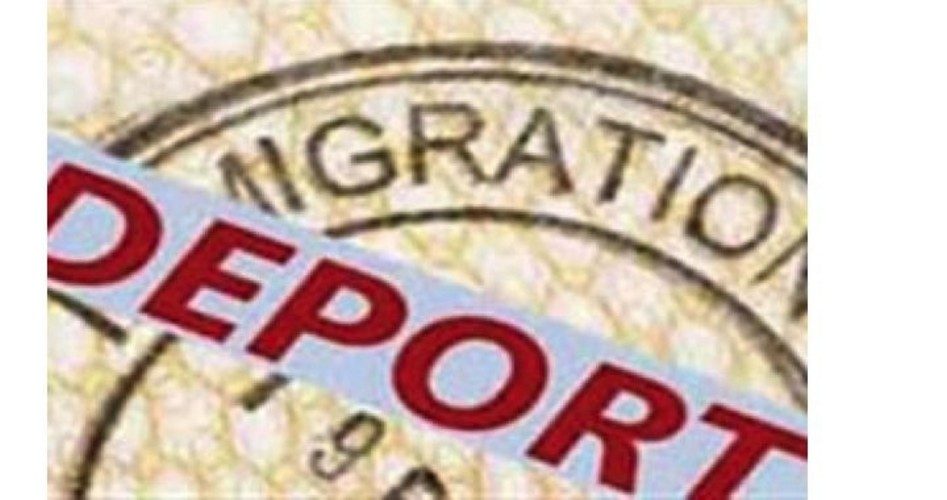
A number of recent opinion polls conducted around the world and within the United States have found that high numbers of people in most nations are opposed to the present large-scale levels of immigration. This view is especially prevalent in Europe, where more than a million migrants and refugees entered in 2015, and with more than 135,000 people arriving in the first two months of 2016. Similar views are found in the United States, especially after the influx of thousands of unaccompanied children from Central America, and after reports that migrants from places such as Pakistan have made it across the U.S. border.
The wave of terrorist attacks across Europe in 2015 and 2016 also increased fears that terrorists might be entering Europe (and, potentially, the United States) hidden among the refugees.
A poll conducted in 22 countries in June and July by the Paris-based Ipsos polling firm found that 49 percent of those surveyed said there were “too many immigrants” and 46 percent felt “immigration is causing their country to change in ways they don’t like.”
AFP quoted a statement from Yves Bardon, an Ipsos director in France, who said that the widespread media reports of migrants and refugees arriving in Europe “have heightened the fear of uncontrollable migration throughout most of Europe, with the key issue being their ability to integrate.”
A matter of even more concern than cultural assimilation for many Europeans is the issue of terrorism. Six out of 10 people questioned for the Ipsos survey said they were concerned about terrorists pretending to be refugees, and four in 10 want to close their nation’s borders entirely.
At least six out of 10 people in France and Belgium, which have recently suffered deadly terrorist attacks, believe immigration has had a “negative impact,” AFP quoted Ipsos as saying.
Among the terrorist attacks in Europe were those in Paris on November 13 that killed 129 people and wounded more than 350 others; bombings in Brussels on March 22 that killed 32; and a radicalized truck driver who killed another 84 people in Nice, France, on July 14.
Commenting in the aftermath of those attacks, Hungarian Prime Minister Viktor Orban told reporters in Warsaw on July 21 that there is quite an obvious link between illegal migration to Europe and the terrorist attacks in European nations. “It is clear as two and two makes four; it is plain as day. There is an obvious connection [between the large-scale migration and the terrorist attacks],” Orban said through an interpreter. “If somebody denies this connection then, in fact, this person harms the safety of European citizens.”
The Ipsos survey was carried out in Argentina, Australia, Belgium, Brazil, Canada, France, Britain, Germany, Hungary, India, Italy, Japan, Mexico, Poland, Russia, Saudi Arabia, South Africa, South Korea, Spain, Sweden, Turkey, and the United States, with a total of 16,040 people being questioned.
Another recent poll conducted from August 17-18 by the U.S.-based Rasmussen Reports found that 59 percent of likely U.S. voters favor a temporary ban on immigration into the United States from “the most dangerous and volatile regions of the world that have a history of exporting terrorism” until the federal government improves its ability to screen potential terrorists from migrating here. Thirty-two percent oppose such a ban, while 10 percent are undecided.
Rasmussen reported on its website that 73 percent of those surveyed agree with Republican presidential nominee Donald Trump’s call for a government screening test for those who want to enter the country to determine whether they have hostile attitudes toward the United States and its constitutional freedoms. Only 18 percent are opposed to this type of test. Rasmussen further reported:
While Democrats by a 52% to 38% margin oppose the temporary ban on immigrants from countries with a history of terrorism, most voters in Hillary Clinton’s party (57%) agree with the use of a government screening test. Eighty-nine percent (89%) of Republicans and 74% of voters not affiliated with either major party support such a test. But 81% of GOP voters and 59% of unaffiliated also agree with a temporary ban on those coming from countries with a history of terrorism.
Another poll conducted by Gravis Marketing in conjunction with Breitbart News Network, which reported its results on July 31, indicated that by a nearly 6 to 1 margin, U.S. voters believe immigration should be decreased rather than increased.
The survey also revealed that by an overwhelming 25-to-1 margin, voters believe that unemployed American workers should get preference for a U.S. job over a foreign worker brought in from another country. These results even extended to voters who identified themselves as Democrats or minority voters. Democrats agreed that unemployed Americans should be given preference for jobs over foreign labor by a 69.8 percent to 2.3 percent margin. African Americans agreed by an even greater margin of 78.5 percent to 1.2 percent. And even Hispanics, who are traditionally regarded as being very favorable to immigration, agree with this sentiment by a margin of 59.1 percent to 2.0 percent.
On another question asked by the Breitbart/Gravis survey, 61 percent of voters believe that any politician “who would rather import foreign workers to take jobs rather than give them to current U.S. residents is unfit to hold office.”
The Breitbart report noted that despite the opposition of an overwhelming majority of Americans across the demographic board to bringing in more foreign labor, both Democratic and Republican politicians have ignored their pleas.
The report noted that Democratic presidential nominee Hillary Clinton supported the 2013 Rubio-Schumer immigration expansion plan, which would have doubled legal immigration at a time when unemployment among U.S. workers was high, as it continues to be.
The Republican leadership is no better, noted the report. House Speaker Paul Ryan has a two-decade-long history of pushing for open borders and has called for enacting an immigration system that would allow foreign nationals from all over the globe to freely and legally enter the country to take U.S. jobs.
An earlier Breitbart report last October featured a transcript from a 2013 video entitled “Rep. Paul Ryan and Rep. Luis Gutierrez Push For Immigration Reform.” Gutierrez (D-Ill.), who is a hard core leftist who is among the strongest supporters of amnesty for illegal aliens in the House, said when supporting Ryan for speaker: “He would be good for the country. He would be good for the Republican Party. Paul Ryan is the kind of individual that would work with people on the other side of the aisle, and that’s what we need.”
The video transcript quotes this statement from Ryan:
[America] is not just a country. America is an idea. It’s an idea that people from all over the world to aspire to achieve…. There is no other economic system, no other immigration system that has done more to lift people out of poverty than the American free enterprise system, and American immigration system that we have here. That’s what makes us proud. So the question is: what do we do to restore this? … We’ve had plenty of waves of immigration that have always been met with resistance in the past — the Irish wave is just but one of them. Each wave is met with some ignorance, is met with some resistance.
Ryan failed to mention that the great wave of Irish (and other) immigrants who poured into American in the 19th century came here legally and during a period when our “social welfare network” did not exist, requiring them to support their families without placing a burden on the taxpayers.
The recent polls conducted in the United States and around the world indicate that the majority of people here and abroad do not favor the present system of practically unrestricted, unlimited immigration.
Related articles:
Elite vs. the Street: More Americans Favor Trump’s Temporary Muslim Immigration Ban
Border Crisis Causes Support for “Immigration Reform” to Drop



